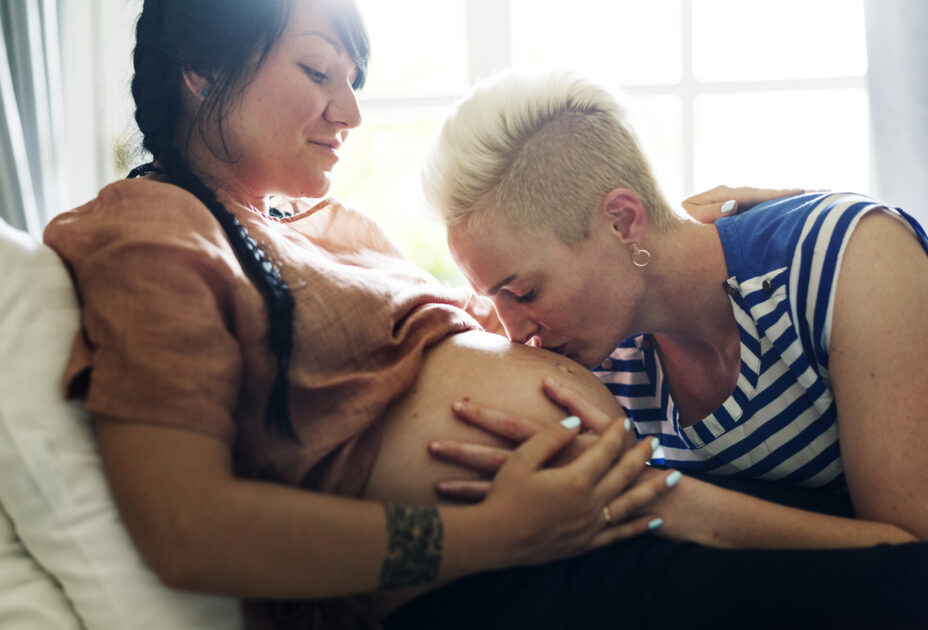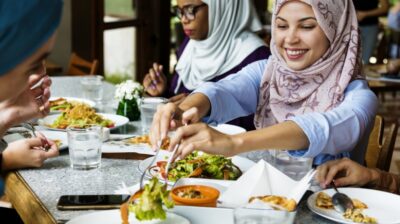A healthy eating guide for pregnant people
Things to be mindful of when it comes to food and nutrition during pregnancy

Eating healthily during pregnancy will help your baby develop and grow and will help keep you fit and well. You don’t need to go on a special diet, but make sure that you follow the basic healthy eating guidelines to get the right balance of nutrients that you and your baby need. Here are some things pregnant people consider.
Folic acid is important for pregnancy
Folic acid is a B vitamin that is found in some foods as well as in supplement form. If you have enough folic acid around the time you conceive your baby, then there’s less risk of your baby being born with neural tube defects such as spina bifida.
Extra iron is good for pregnancy
You need extra iron when you’re pregnant to make new blood cells for your developing baby. So be sure to eat iron-rich foods regularly throughout your pregnancy. Lean red meat is the best source of iron in the diet. Other good sources are chicken and turkey – especially the dark meat – and oily fish. Liver has lots of iron too, but you should avoid eating it while you’re pregnant because it has very high levels of Vitamin A.
Other foods that contain iron are:
- peas
- beans
- lentils
- eggs
- wholegrain bread
- dried fruit
- green vegetables
- some breakfast cereals (check the label)
Having some salad vegetables, citrus fruits or a glass of fruit juice with your meals will boost your iron absorption.
You may be advised by your doctor to take iron supplements during pregnancy. Speak to your doctor if you have a history of heavy periods, have been anaemic in the past or if you’re vegetarian or vegan.
Extra calcium is good for pregnancy
You need extra calcium in your diet during pregnancy. This is to allow your developing baby’s bones to grow and develop, while looking after your own bones too.
Dairy foods like milk, cheese and yoghurt are the best sources of calcium. As long as you’re pregnant you should have five servings of dairy foods each day.
One serving is a glass of milk, a carton of yoghurt (125g) or a matchbox-sized piece of cheese.
Other foods that have some calcium are:
- Green leafy vegetables (like broccoli or cabbage)
- Tinned fish where the bones can be eaten (like sardines or salmon)
- Nuts
- Soya products
- Baked beans
- Calcium-enriched juice drinks, breads or breakfast cereals (check the labels)
Vitamin D
In the UK you’d be advised to take supplements containing 10 micrograms of vitamin D each day while pregnant or breastfeeding. In the Republic of Ireland the advice is to take a supplement of 5 micrograms Vitamin D per day. Vitamin D is only found in a small number of foods – in fact we get most of our Vitamin D from the sun.
Fish and omega fats
Omega-3 and omega-6 fatty acids are important for the developing baby’s brain and eyes. You’ll find these fatty acids in:
- Oily fish (like herring, mackerel, sardines, salmon, trout)
- White fish (like cod, plaice, whiting)
- Some vegetables oils (rapeseed, canola, flaxseed, linseed, walnut)
So, when you’re pregnant, aim to eat two portions of fish each week, one of which is oily. Some types of fish such as shark, marlin and swordfish (and to a lesser degree tuna) can contain levels of mercury that are too high for your baby. So during pregnancy, you should note the following:
- Include a maximum of two portions of oily fish in the week
- Avoid shark, swordfish and marlin
- Limit tuna to four tins per week, or two tuna steaks per week
Things to limit during pregnancy:
Vitamin A
Having too much vitamin A may harm you baby. Avoid taking fish liver oil or supplements that contain vitamin A while you’re pregnant. Eating liver is best avoided while pregnant because it is high in Vitamin A
Unpasturised dairy
Avoid unpasteurised dairy products, soft mould-ripened cheeses like Camembert or Brie, and all blue-veined cheese because of the risk of Listeria food poisoning which is dangerous during pregnancy.
Alcohol
Avoid alcohol completely during pregnancy. Cutting out alcohol means it cannot harm your baby.
Caffeine
High levels of caffeine might result in babies having a low birth weight, which increases their risk of some health conditions as babies and in later life. High levels of caffeine may also increase the risk of miscarriage. You don’t need to cut it out completely but try to keep your caffeine intake below 200mg per day. Caffeine is also found in some cold and flu remedies.
The following are below 200mg:
- 1 mug filter coffee: 140mg
- 1 mug instant coffee:100mg
- 1 mug tea: 75mg
- 1 can cola: 40mg
- energy drink: 80mg
- 50g bar plain chocolate: 50mg
- 50g bar milk chocolate: 25mg
Always check the labels of specific products for accuracy.
Undercooked or raw eggs
Because of the risk of salmonella food poisoning. Food poisoning is a much nastier experience when you are pregnant.
Raw shellfish
Because they may contain bacteria or viruses that may cause food poisoning. Shellfish is perfectly safe to eat if it is cooked thoroughly.
Allergies
Some guidelines recommend that you avoid peanuts during pregnancy, breast feeding, and the first three years of childhood. While the evidence to support these guidelines is not conclusive, it is important to be vigilant until there is more concrete evidence one way or the other, especially if there is a history of atopic disease (asthma, eczema, etc.) in the family.
How to cope with the food-related problems during pregnancy
Morning sickness
You have around a 70% chance of suffering from sickness while pregnant, usually in early pregnancy. By the end of the 4th month, symptoms usually disappear or become much milder. To relieve the symptoms of sickness try to:
- Eat small but frequent meals (with about two hour intervals)
- Avoid smells and foods that make your sickness worse
- Eat more nutritious carbohydrate foods: try dry toasts or crackers, breakfast cereals, fruits and vegetable salads at any time during the day
- Eat less fatty and sugary foods
Constipation
- Constipation during pregnancy is very common. It may help to:
- Drink plenty of fluid such as plain water (6-8 cups a day)
- Increase intake of foods rich in fibre (wholemeal bread, brown rice, wholegrain cereals, fresh and dried vegetables and fruits, especially prunes and figs)
- Remember, iron supplements can sometimes cause or aggravate the symptoms of constipation. If you are taking iron supplements and notice that the symptoms of constipation progress, consult your doctor.
Heartburn
This is also a common problem during pregnancy. It may occur anytime, but symptoms usually get worse at the end of pregnancy. Some tips to help with heartburn:
- Avoid chocolate, fatty foods, alcohol and mint, especially before bedtime – they tend to relax oesophageal muscle so that acid from the stomach comes up into the oesophagus more easily
- Avoid acidic and spicy foods that may irritate the lining of the stomach (tomato, citrus fruits and juices, vinegar, hot pepper, etc.)
- Milk and dairy products can temporarily relieve the symptoms of heartburn
- Eat slowly, drink fluids between meals rather than with meals
- Eat small frequent meals, do not eat large meals before bedtime
- Sleep well propped up, not lying flat.
- Remember to consult your doctor before taking antacid medications
- Some antacids can bind iron in foods and make it more difficult for you to absorb iron from your food or supplements.
You can find out more about Pregnancy and Food at SafeFood.eu.






